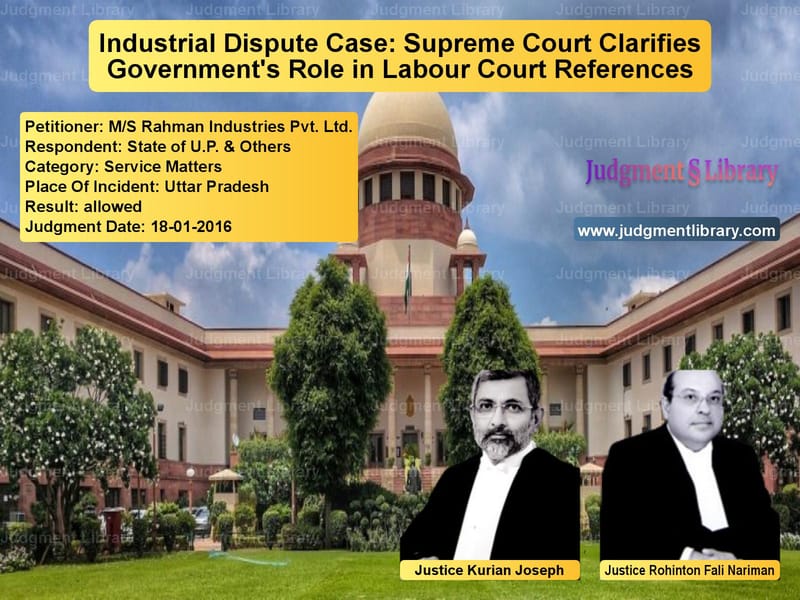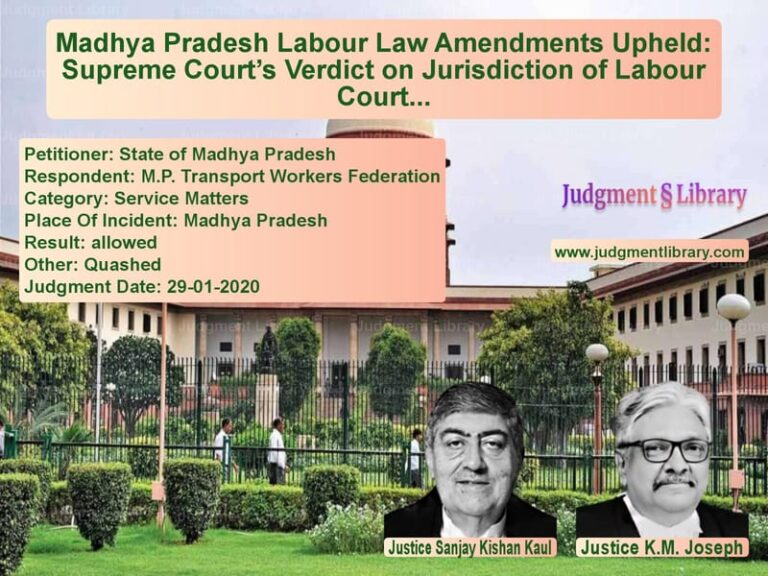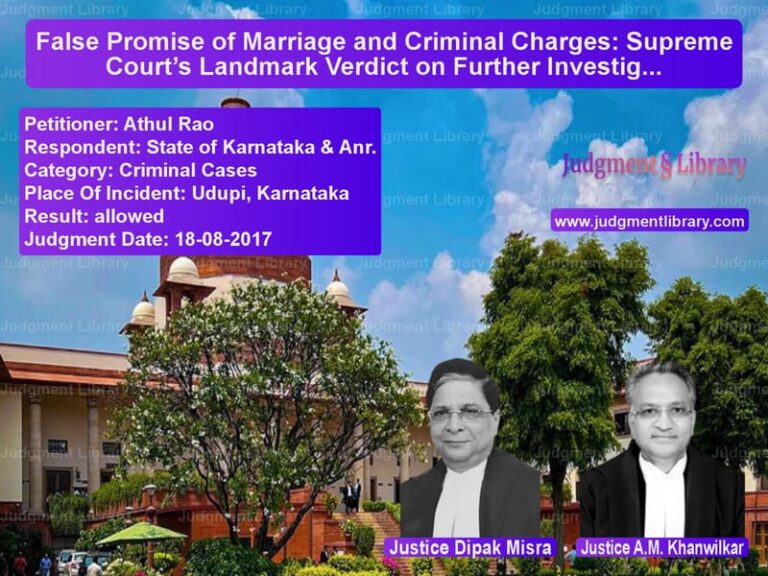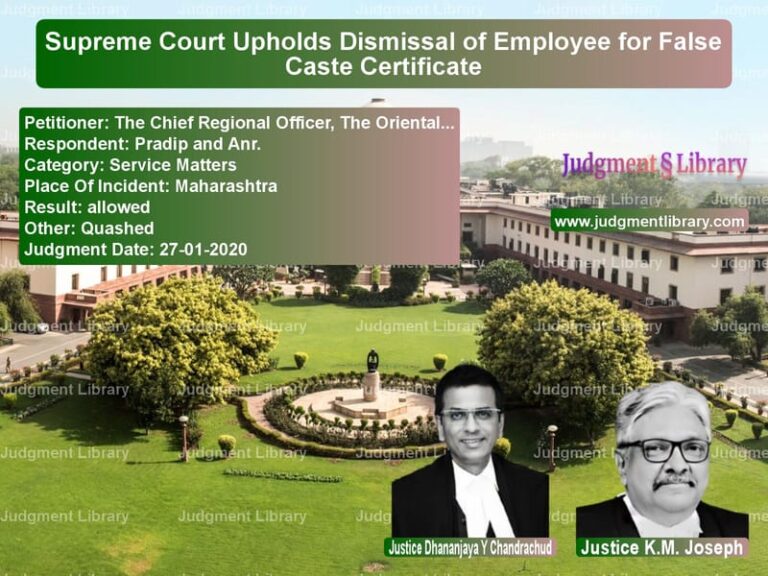Industrial Dispute Case: Supreme Court Clarifies Government’s Role in Labour Court References
In a significant judgment dated January 18, 2016, in Civil Appeal No. 286 of 2016, the Supreme Court of India clarified the government’s role in referring disputes to the Labour Court under the Industrial Disputes Act, 1947. The case, involving M/S Rahman Industries Pvt. Ltd. and the State of U.P. & Others, revolved around whether the High Court could mandate the government to refer a dispute for adjudication, bypassing the government’s discretion.
Background of the Case
The appellant, Rahman Industries Pvt. Ltd., challenged an order dated August 27, 2010, passed under the Timely Payment of Wages Act, 1978, leading to a recovery order. The appellant approached the High Court, which quashed the orders on the ground that the Labour Court lacked jurisdiction. However, the High Court directed the government to mandatorily refer the workmen’s dispute for adjudication before the Labour Court.
The appellant challenged this directive in the Supreme Court, arguing that such a peremptory direction undermined the government’s discretion to determine whether a dispute merited reference.
Key Legal Issues
- Does the government act as a mere post office in referring disputes under the Industrial Disputes Act?
- Can a High Court issue a mandatory direction to refer a dispute?
- What is the government’s role in assessing whether a dispute is referable?
Arguments by the Appellant (Rahman Industries)
- The High Court’s direction violated the scheme of the Industrial Disputes Act.
- The government must apply its mind before referring a dispute.
- The High Court’s decision removed the government’s discretion to determine the existence of a genuine industrial dispute.
Arguments by the Respondents (State of U.P. & Others)
- The High Court acted within its powers to protect workmen’s rights.
- The government should not delay referring disputes to the Labour Court.
- Workmen had been waiting for adjudication and deserved a speedy resolution.
Supreme Court’s Ruling
The Supreme Court ruled in favor of Rahman Industries, emphasizing that the government has the authority to determine whether a dispute exists before referring it to the Labour Court. The Court cited previous judgments reinforcing the principle that:
“In the scheme of the Industrial Disputes Act, 1947, it is not as if the Government has to act as a post office by referring each and every petition received by them.”
The Court further held:
“The High Court has issued a mandatory direction in the very first instance to refer the dispute, if any, raised by the workmen for adjudication before the Labour Court. That is against the scheme of the Act.”
However, the Supreme Court also directed that if the government finds a genuine dispute exists, it must refer it within three months.
Key Takeaways from the Judgment
- The government must apply its mind before referring a dispute to the Labour Court.
- The High Court cannot compel the government to refer a case without due process.
- Referrals should be based on a genuine dispute, not automatic forwarding of complaints.
Conclusion
This judgment reinforces the balance of power between the executive and the judiciary in industrial disputes. While workers’ rights must be protected, procedural fairness requires that the government retains its role in evaluating whether disputes are legitimate before sending them for adjudication.
Don’t miss out on the full details! Download the complete judgment in PDF format below and gain valuable insights instantly!
Download Judgment: MS Rahman Industrie vs State of U.P. & Othe Supreme Court of India Judgment Dated 18-01-2016.pdf
Direct Downlaod Judgment: Direct downlaod this Judgment
See all petitions in Employment Disputes
See all petitions in Judgment by Kurian Joseph
See all petitions in allowed
See all petitions in supreme court of India judgments January 2016
See all petitions in 2016 judgments
See all posts in Service Matters Category
See all allowed petitions in Service Matters Category
See all Dismissed petitions in Service Matters Category
See all partially allowed petitions in Service Matters Category







